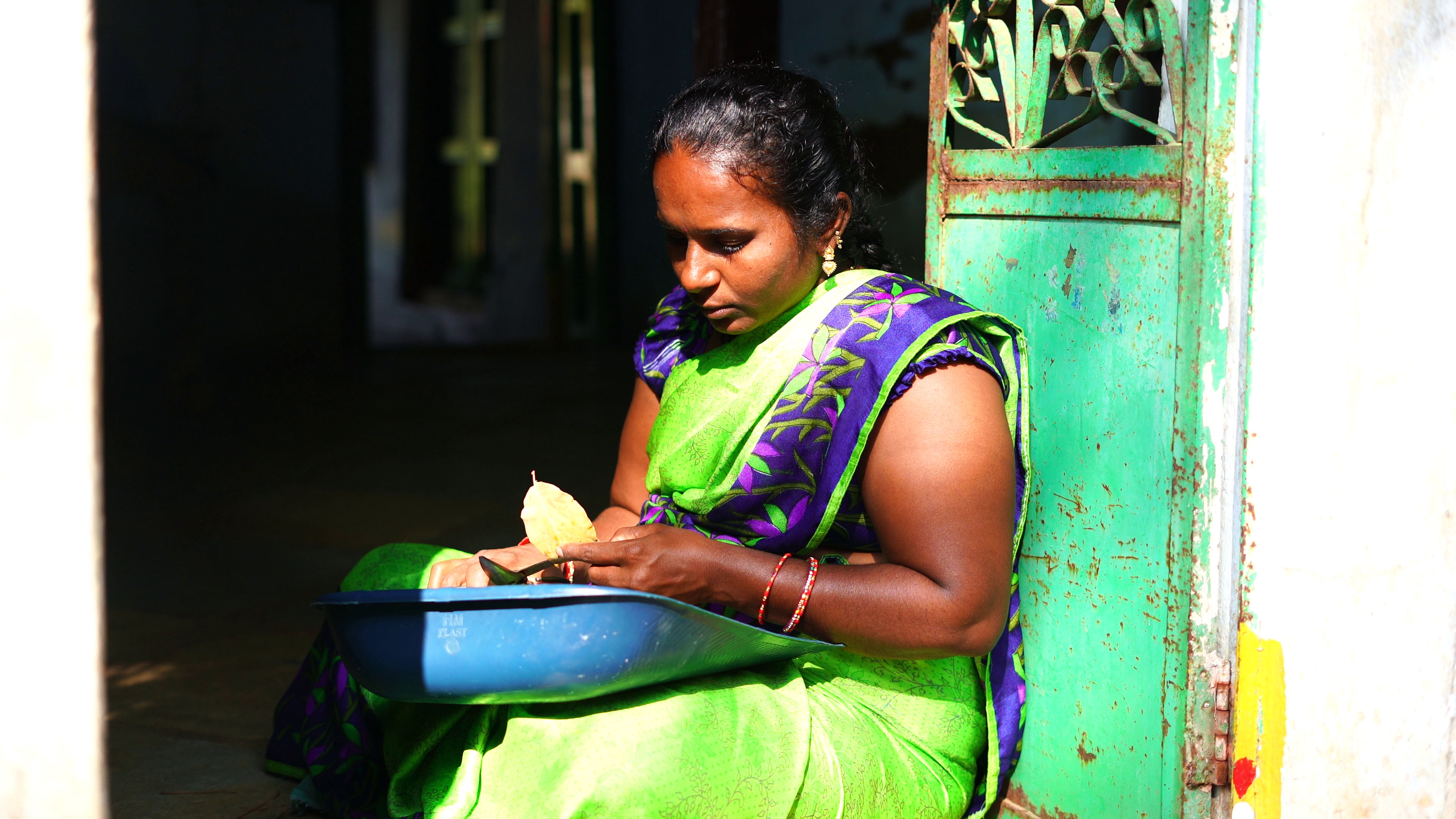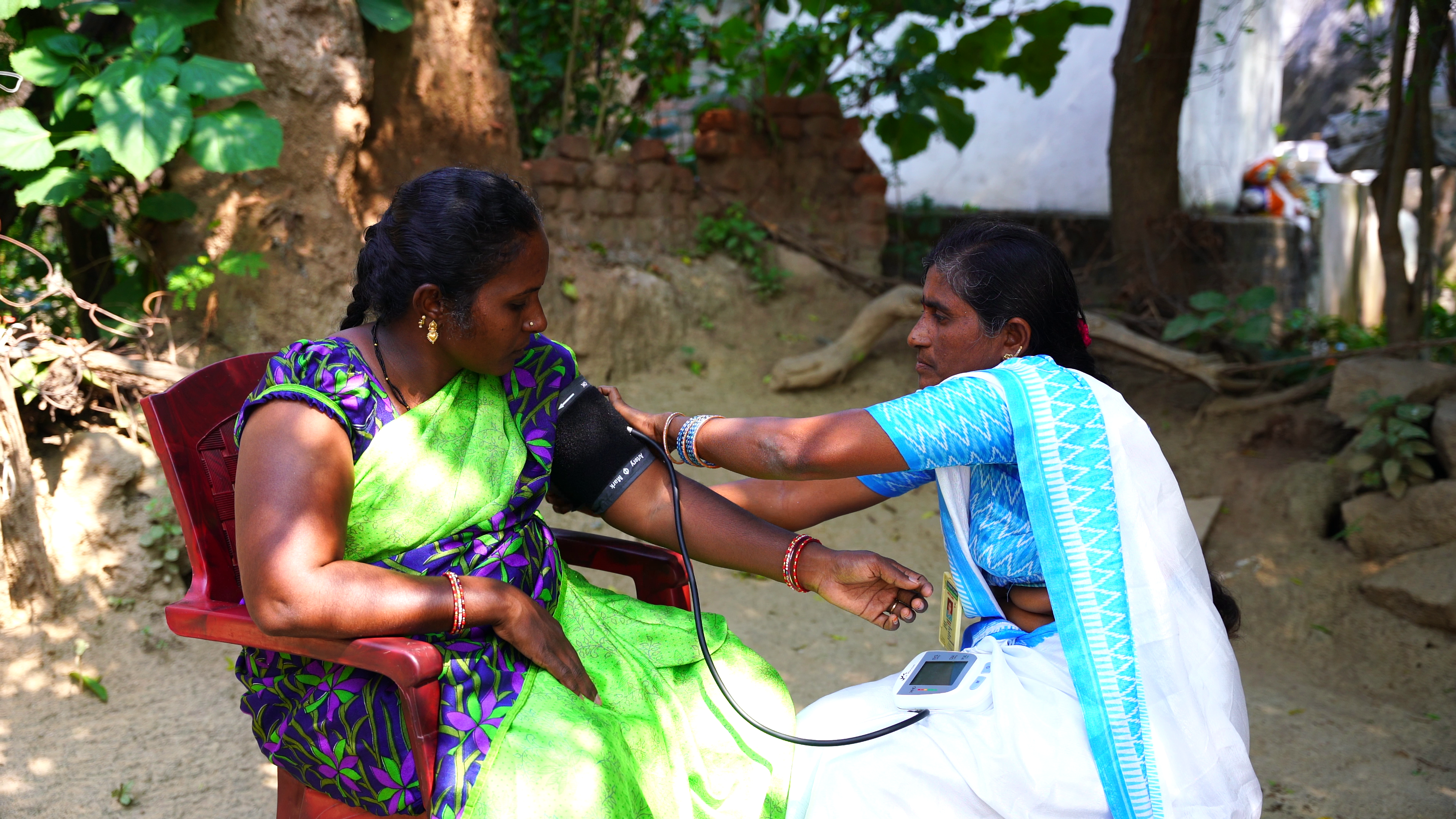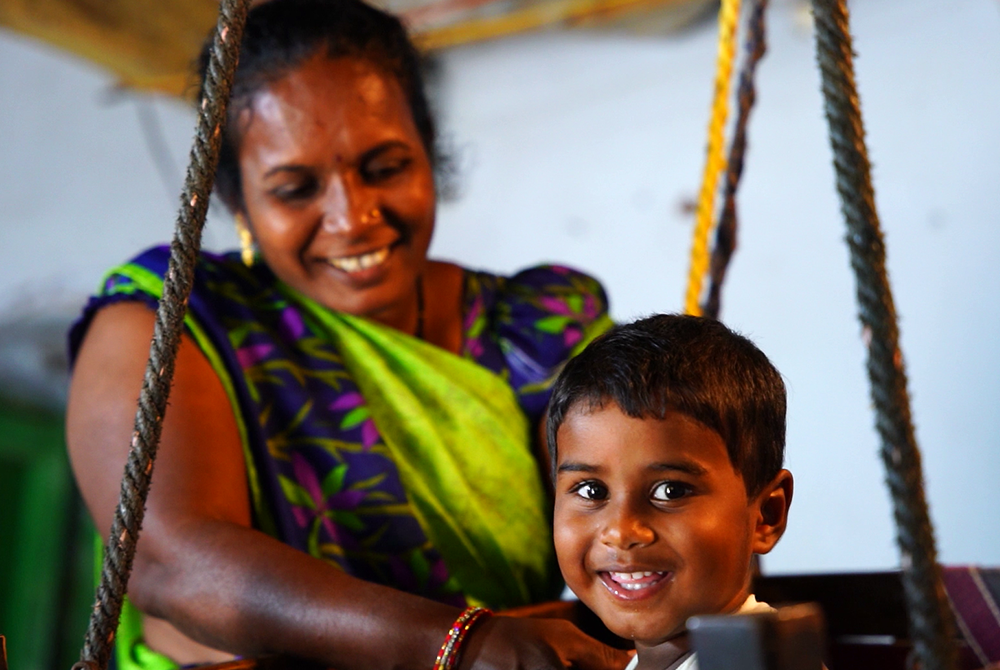
Sravanthi's story
Sravanthi lost her first baby in the eight month of pregnancy due to pre-eclampsia. When she became pregnant again, she was enrolled in the SMARThealth Pregnancy program. This time, an ASHA worker diagnosed her high blood pressure and helped her manage her condition through to the birth of her baby boy.
My health improved, my blood pressure stabilised, and I was able to carry the pregnancy to term. I feel much better now, both physically and mentally. I no longer live in fear.
By:Sravanthi
SMARThealth user
Sravanthi's story
Struggling to make a living on low wages and handouts from family members, life got even harder for newly married Sravanthi when she became pregnant for the first time and had to give up her part time job processing tobacco leaves.
During the fifth month of her pregnancy, she started to experience some worrying signs that something was wrong – her legs, face, and whole body swelled up.
"At the hospital they said the baby was growing fine, but I couldn’t help but feel tense," she said.
They advised her to follow a low salt diet and to walk more to help with the swelling. Back home, she tried to manage her stress and made sure she was taking the medication she’d been given. But her condition still didn’t improve.
At the same time, she had noticed her husband was behaving strangely, which was adding to her stress. She was unaware that he was hiding his own health issues, and his kidneys were slowly deteriorating.
Returning to the hospital in the eighth month of her pregnancy, she found her regular doctor wasn’t there and left, thinking she would go to another hospital instead.
"But everyone discouraged me from doing so and told me to continue with the same doctor. During this time, I started bleeding."
She was rushed back to the local hospital, who referred her on to a larger city hospital for emergency surgery. Sadly, she lost the baby.

They had to remove the baby as due to the heavy bleeding the baby could not survive. My blood pressure had increased, and the baby passed away in my womb.
By:Sravanthi
SMARThealth user
From tragedy to new beginnings
Three months after her traumatic experience, Sravanthi’s husband passed away from kidney failure.
She eventually remarried three years later in response to pressure from her parents, but it turned out to be a real turning point for her.
“My second husband takes good care of me. He never says anything negative. We always discuss everything together—whatever we do, we both agree and support each other. He listens to me, and I listen to him.”
He even ensured she got the care she needed when she fell pregnant again - they didn’t know how to interpret the pregnancy test, so he took it to the community health worker, or ASHA, who asked to see his wife urgently. The pregnancy was confirmed, Sravanthi was given the medicines she required, and her husband was advised to take extra care of her diet and health.
She was also enrolled in the SMARThealth program, which supports community health workers to identify and manage chronic health conditions using a low-cost, digital platform.
The ASHA worker would come every ten days to check my blood pressure. She reassured me, especially because I had a difficult pregnancy in the past and told me that this time, I should not be fearful. She encouraged me to stay happy, healthy, and free of worries.

Sravanthi did everything she was told, eating on time, taking her tablets, going for a walk daily, and avoiding any heavy lifting. As her blood pressure was being checked regularly, she stopped feeling as scared as she was before. Her husband also did what he was told, taking good care of her and helping her to feel more supported.
The ASHA worker attended the delivery and continued to care for Sravanthi afterwards, making sure that everything was fine. Sravanthi is grateful for all the support she received.
"If she hadn’t been there to monitor my blood pressure and guide me, it would have likely gone up again, and I could have faced again complications in my pregnancy, just like last time," she said.
"She not only helped me manage my health but also gave me the confidence I needed to stay positive and healthy."
Hope for the future
Sravanthi describes her second husband as a good person who works hard. "My husband also supported me, and together, we ensured that I stayed healthy." She says they are finally making progress, and she is hopeful for the future.
As they embark on the next stage of their life together as a family, the only thing missing was a proper house to live in. But now Sravanthi and her husband are building their own home, which she says is a dream come true for her.

Now, I am looking forward to the future with hope and excitement, no longer burdened by the fear I once carried. I will continue to follow the advice and precautions given to me to ensure the health of my baby and myself.
SMARThealth is a primary healthcare tool developed by The George Institute to guide screening, diagnosis and management of chronic diseases. The approach, which focuses on a low-cost, digital platform used by health workers, significantly improves patient care in low-resource settings. SMARThealth is implemented through handheld digital devices such as tablets which use evidence-based algorithms and guidelines embracing new AI technology, to evaluate patient information input by health workers, who can refer patients ‘at risk’ to clinicians for follow-up. Health workers using our SMARThealth digital platform have connected over 10,000 women to essential healthcare during and after pregnancy, addressing critical gaps in cardiovascular, maternal, mental, and environmental healthcare.
Read more about how our research has helped people like Sravanthi.
Support our work in women’s health today to make a real difference to women and girls around the world.

